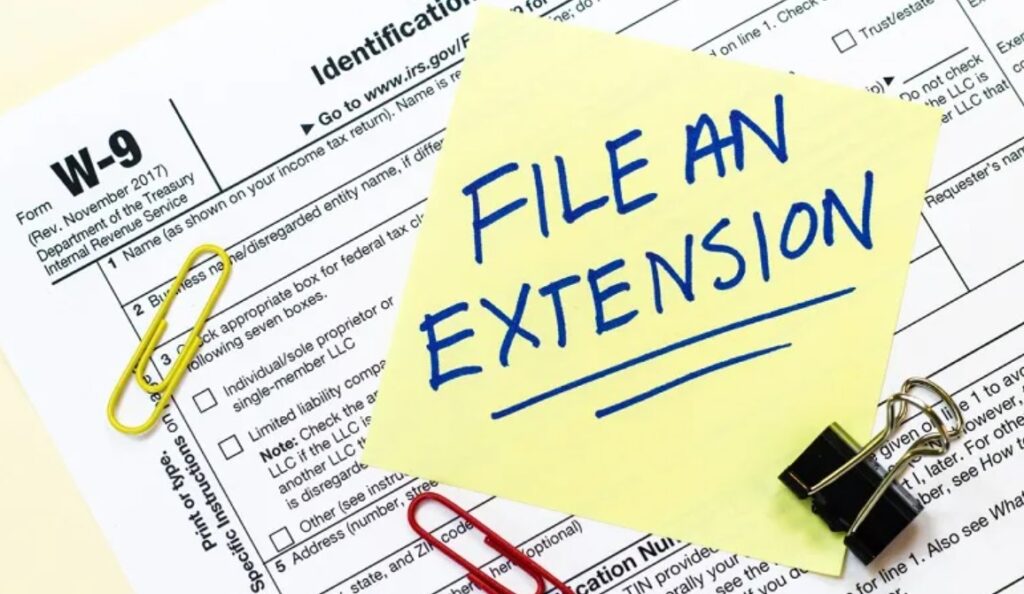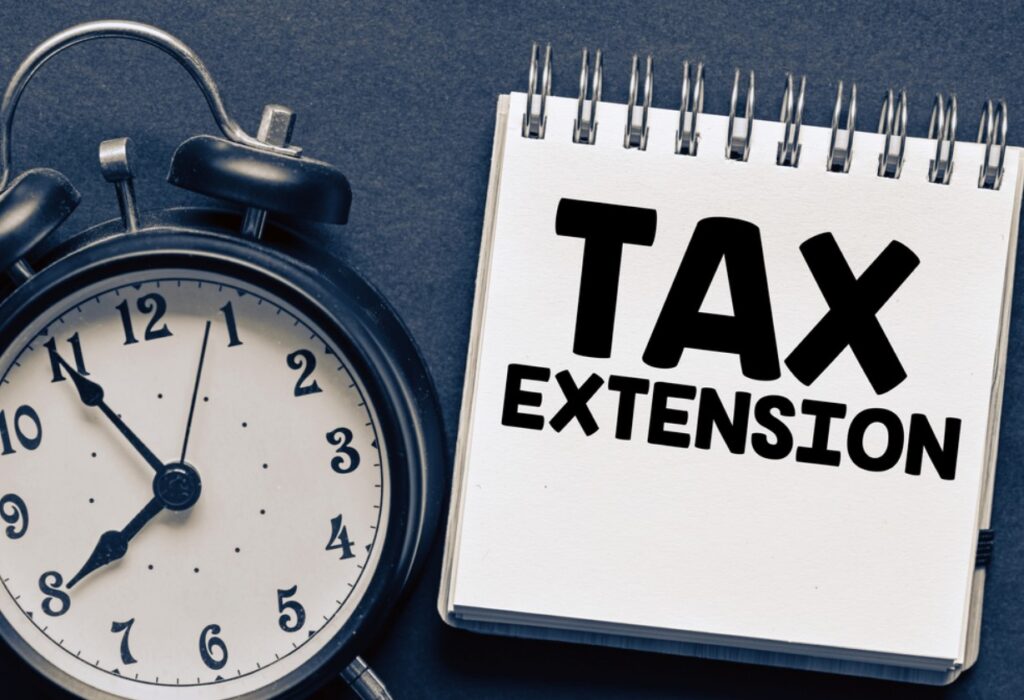Understanding Tax Extensions: Your Guide to Filing IRS Tax Extensions for 2024 and 2025
Tax season can be stressful, but fortunately, the IRS offers taxpayers the option to request an extension. If you don’t file your tax return on time, filing a tax extension can provide you with extra time to gather the necessary documentation and avoid penalties. In this comprehensive guide, we’ll walk you through everything you need to know about tax extensions, including how to file for one, important deadlines, and the process of filing IRS tax extensions for both 2024 and 2025.
What Is a Tax Extension?
A tax extension is a request you file with the IRS that grants you extra time to submit your tax return beyond the typical deadline. Understanding that a tax extension doesn’t prevent you from paying your taxes is important. It only extends the deadline for filing your return, not for paying any taxes you owe. You must estimate your tax liability and pay it by the original deadline to avoid interest and penalties if you owe money.
Why Would You Need a Tax Extension?
There are various reasons why you might need a tax extension. Perhaps an unexpected life event, such as illness or a family emergency, or maybe you need more time to organise your financial documents. Some common reasons for requesting a tax extension include:
- Missing documents: Sometimes, you might be waiting for forms like a W-2 or 1099 that have not been filed by the deadline.
- Personal issues: Life events such as illness or the loss of a loved one can interfere with your ability to meet tax deadlines.
- Complex tax situations: If you have multiple income sources, investment earnings, or deductions, you may need more time to ensure your tax return is accurate.
Regardless of your reason, filing a tax extension gives you up to six months to prepare and submit your tax return.

How to File a Tax Extension: A Step-by-Step Guide
Filing a tax extension with the IRS is relatively simple and can be done online or by mail. Here’s how a tax extension for the 2024 and 2025 tax years:
- Estimate Your Taxes Owed:. Although an extension gives you more time to file, you must still pay any estimated taxes owed by the original tax deadline.
- Use IRS Form 4868: To request a tax extension, you must file IRS Form 4868. This form is available on the IRS website and can be filed online using the IRS e-File system or by mail.
- Submit Form 4868: If you’re a taxpayer, you can use IRS e-File or tax software to submit the form electronically. If you’reyou’reg you’re g the completed form to the appropriate address listed on the IRS website.
- Payment of Estimated Taxes: If you owe taxes, you can submit payment electronically via IRS Direct or other IRS payment methods. It’s important to pay the amount you estimate you owe to avoid penalties.
- Confirm Submission: If you file online, you’ll receive confirmation of your submission. If you file by mail, it’s recommended that you mail it to ensure proof of submission.
IRS Tax Extensions Deadline 2024 and 2025
The deadline for filing a tax extension may vary slightly depending on your specific circumstances, but generally, the following deadlines apply:
- Tax Extension Deadline for 2024: The deadline for filing a tax extension for the 2024 tax year is April 154. However, the deadline may be adjusted if this date is a weekend or holiday. Always check the IRS website for confirmation.
- Tax Extension Deadline for 2025: Similarly, the deadline for filing a tax extension in 2025 will be April 155, unless this date falls on a weekend or holiday.
If you submit your tax extension request by the deadline, you’ll get a six-month extension to file your return. This means the new filing deadline will be October 154 (for 2024 tax returOctober 15ober 15, 2025 (for 2025 tax returOctober 15n Mistakes to Avoid When Filing a Tax Extension.
While filing a tax extension is a simple process, it’s important to avoid common mistakes that could lead to penalties or additional stress. Here are a few things to watch out for:
- Not Paying Estimated Taxes: As mentioned earlier, filing an extension does not extend the payment of taxes. If you owe taxes, you must pay them by the original deadline, even if you file for an extension.
- Missing the Extension Deadline: Filing for an extension after the April deadline will result in penalties and interest. Always file before the original tax deadline.
- Incorrect Form: Use IRS Form 4868 for an individual extension request. If you’re requesting an extension, you’ll need a different form.
- Failure to Submit Documentation:. If you need documents, complete your tax return as soon as possible. You must file by the extended deadline; otherwise, you risk penalties.
What Happens After You File a Tax Extension?
Once your tax extension has been approved, you must file a tax return. However, it’s crucial that its extension only applies to your filing date, not your payment date. The IRS will accrue penalties and interest on any unpaid amounts if you haven’t filed returns. Here’s what happens.
- r Tax Return:. Use the extended time to prepare your tax return carefully, ensuring all your deductions and credits are accurately claimed.
- File Before the Extended Deadline: Ensure your return is filed by the extended deadline, typically October 15. Failing to do so may result in OctobOctober 15th fines for late filing.
Frequently Asked Questions (FAQs)
What happens if I miss the tax extensions deadline?
If you miss the tax extension deadline, you may face penalties for late filing and payment. It’s a good idea to file as soon as possible to minimise these penalties.
Can I get another extension if I can’t meet the deadline?
The IRS typically does not grant an additional extension beyond the six months. You must file. To avoid penalties, you have an extended deadline. You do not need to file an extension if you’re seeking a refund. The IRS allows you to file your return anytime, as long as you must pay taxes.
Can I file a tax extension for my state taxes as well?
Most states allow extensions for state taxes, but the process and deadlines may differ. Be sure to check with your state’s specific information.
Is there a fee for filing tax extensions?
There is no fee for filing a tax extension with the IRS. However, you must pay any estimated taxes owed by the original deadline to avoid interest or penalties.
How long will it take to process my tax extensions?
When you file an extension electronically, you’ll receive your information immediately. If you file by mail, the IRS may take several weeks to process your request.
Conclusion
Filing a tax extension can be a lifesaver if you can’t file your tax return on time. Whether you’re dealing with documents, personal issues, or simply need extra time, an extension grants you the flexibility you need. Remember, while it provides more time to file, it doesn’t give you time to pay your taxes. Pay any taxes owed by the original deadline to avoid unnecessary penalties and interest.
At Syed Professional Services, we’re here to help you navigate the tax extension process with ease. If you need assistance with filing your taxes or have any questions about the process, don’t hesitate to contact us. Let us help you meet your tax deadlines with confidence!
Additional Tips for Filing a Tax Extension
Filing a tax extension is a practical option, but several other steps and best practices must be considered to ensure the entire process goes smoothly. Here are some additional tips for managing your tax extension effectively:
Use IRS e-File for Fast and Easy Processing
One of the easiest ways to file for a tax extension is through the IRS e-File system. This method allows you to electronically submit your extension form (IRS Form 4868) to the IRS. Filing electronically is not only quicker but also gives you immediate confirmation that your extension request has been received. This is especially helpful if you’re working around the clock, as you won’t wait for a timely response.
Moreover, e-filing ensures there are no postal service delays, which is a common problem when receiving by mail.
Check Your State’s Policy
State’s position on the federal tax extension: Check whether your state has a similar process. Many states follow the federal guidelines for extensions, but some may have their own deadlines or requirements. For example, while the federal deadline may be extended to October 15, the state may have an October 15th date or require a separate extension form.
It’s important to check with your state’s Department of State or Tax Commission to ensure you’re compliant with your state’s tax laws. Some states automatically grant an extension when the IRS grants one, while others require you to file a separate request.
Document Your Payment
If you’re filing your taxes when you file for an extension, always keep documentation of the payment. Whether you’re online or by mail, be sure to retain receipts or confirmation emails. This serves as proof of payment in case there are any disputes or discrepancies with the IRS later.
If you pay online, you will typically receive an immediate confirmation email, which you should save for your records. If paying by check, include your name, taxpayer identification number (TIN), and other relevant details with your payment.

Penalties and Interest on Unpaid Taxes
While a tax extension helps with filing deadlines, it does not give you a free pass on paying any taxes owed. Failing to pay the taxes by the original due date will result in penalties and interest, which can add up quickly. Here’s a breakdown of penalties you may face if you fail to pay your taxes on time:
- Failure-to-Pay Penalty: If you don’t pay at least 9 of the taxes you owe by the original due date, you may be subject to a failure-to-pay penalty, starting at 0.5% of your monthly unpaid taxes.
- Interest: The IRS charges interest on unpaid taxes, which is compounded daily. The interest rate changes quarterly, so it’s important to chit’scurrent rates when planning your payment.
To avoid these penalties, paying as much of your taxes as possible by the original deadline is critical, even if you file for an extension. Remember, the extension gives you more time to file your paperwork, not to pay your taxes.
What to Do If You Can’t File Your Taxes. If you’re having difficulty paying your tax bill, don’t. The IRS offers payment options to help you manage your balance:
- Instalment Agreement:. The IRS allows taxpayers to set up a payment plan, allowing you to pay your tax bill over time. You can apply for an instalment agreement online, by phone, or by mail. Remember that interest and penalties will continue to accrue while on your payment plan.
- Offer in Compromise: If you cannot pay your full tax liability, the IRS may allow you to settle for less than the full amount owed through an Offer in Compromise (OIC). This option is typically available if you prove paying the full amount would cause financial hardship.
- Temporarily Delay Collection: If you’re experiencing financial difficulties, you may qualify for a temporary delay in IRS collection activities. This does not affect your tax liability, but it gives you some breathing room while you get back on your feet.
Final Thoughts: Planning for Tax Season
Tax extensions provide much-needed flexibility if you cannot file your taxes on time. However, the most crucial aspect of a tax extension is paying your taxes by the original deadline to avoid penalties and interest. Being proactive and planning will allow you to handle your tax situation more efficiently and prevent unnecessary stress.
If you have questions about the process or need help navigating your situation, please contact Syed Professional Services. We are here to guide you through the intricacies of tax filing, extensions, and payments, ensuring you remain compliant with state and federal tax laws.
Remember, filing and paying your taxes on time is essential to avoid unnecessary financial burdens. Use the extra time from a tax extension to your advantage, and consult a professional if you need assistance.
Why Always Choose Syed Professional Services?
Syed Professional Services is a trusted, reliable resource for individuals and businesses seeking expert tax advice and assistance. Here’s his particular highlight:
- Expertise and Knowledge: Syed Professional Services is portrayed as a company with deep expertise in handling taxes, tax extensions, and complex financial matters. Tax law can be complicated, and professionals at Syed Professional Services have the latest knowledge and experience to help clients navigate tax filing processes, extensions, and payment requirements.
- Personalised Support: Unlike generic solutions or do-it-yourself methods, choosing Syed Professional Services means getting a personalised, one-on-one consultation. The team can assess your unique tax situation and provide customised advice to ensure compliance and avoid penalties.
- Time-Saving: Tax filing and dealing with extensions can be time-consuming. With professional help from Syed Professional Services, you can save valuable time and avoid mistakes, as experts handle the intricate details on your behalf.
- Peace of Mind: When you work with a tax professional, you can rest easy knowing that your taxes are being handled properly, and you won’t have to worry about deadlines or costly errors.

What Can Syed Professional Services Do for You?
If you’reyou’redering Syed Professional Services, here’shere’shey can support you:
Tax Filing Assistance:
Whether you need help filing your tax return on time or need an extension, Syed Professional Services ensures your paperwork is filed accurately and promptly, minimising penalties and maximising your tax benefits.
Tax Extensions:
Many find filing an IRS tax extension tricky, and missing deadlines can be costly. Syed Professional Services can assist with filing tax extension requests and ensuring your paperwork is submitted correctly, on time, and with proper documentation.
Tax Planning & Strategy:
Beyond filing, Syed Professional Services can assist with proactive tax planning. They can help identify deductions and credits you may be eligible for, helping you reduce your overall tax liability. This is especially beneficial for small business owners, freelancers, or anyone with complex financial situations.
State and Federal Compliance:
Navigating both state and federal tax laws can be overwhelming. Syed Professional Services helps ensure you comply with both sets of rules, avoiding state-level penalties or issues that may arise with federal returns.
Audit Assistance:
If you’re under an audit, Professional Services can provide support and representation to ensure you understand the process and protect your interests during an IRS audit.
Tax Problem Resolution:
If you owe back taxes, face a lien, or need help resolving other tax issues, Syed Professional Services can negotiate with the IRS, set up payment plans, or even reduce your tax liabilities through available programs like the Offer in Compromise.
Year-Round Support:
Taxes aren’t a once-a-year event. Professional Services offers year-round support to handle any tax-related issues that may arise, from estimated payments to advice on handling tax changes.
In short, Syed Professional Services can be your go-to partner for all things related to taxes, tax extensions, and overall financial management. Whether you need help filing on time, planning for the future, or resolving past issues, they provide expert guidance to keep you compliant and reduce stress.
Syed Professional Services is an excellent choice if you’re looking for peace of mind, time-saving assistance, and expert tax services.



